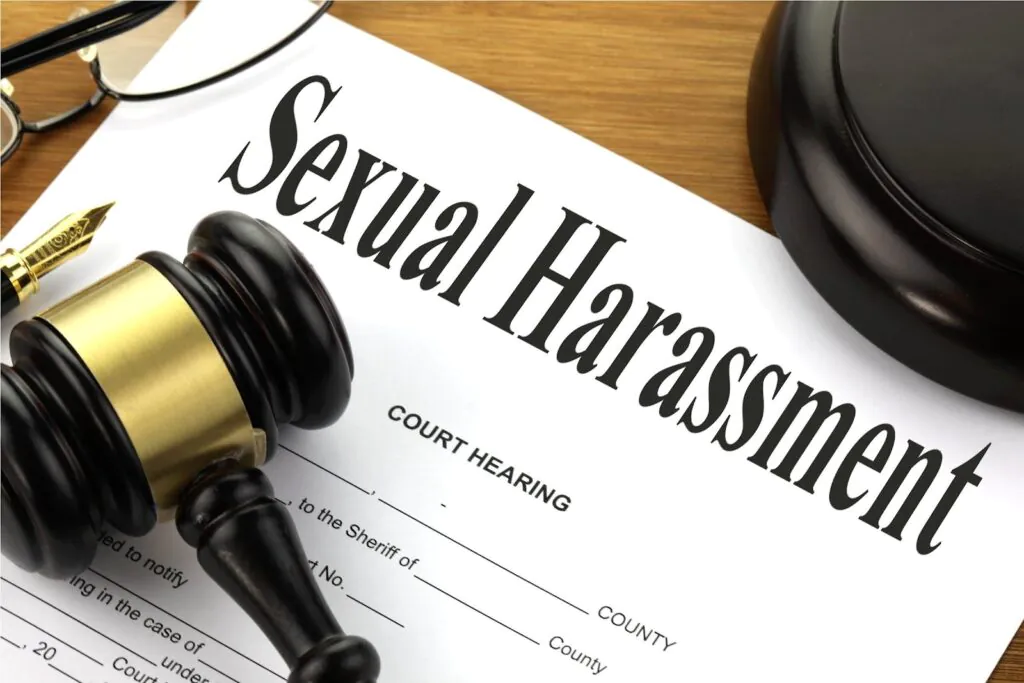News
Can You Sue for Sexual Harassment by a Non-Employee at Work?

Sexual harassment at work doesn’t just come from coworkers or supervisors. In many industries, employees also deal with customers, clients, vendors, or other outside parties. When a non-employee crosses the line, you still have rights. In most cases, yes—you can take legal action if you’ve been sexually harassed at work by someone who doesn’t work for your employer.
Here’s what you need to know.
Industries Where Sexual Harassment by Non-Employees Is Common
Some jobs require constant interaction with the public. That increases the chances of harassment by someone outside the company. Common industries where this happens include:
- Hospitality (hotels, restaurants)
- Retail
- Healthcare
- Transportation (drivers, flight attendants)
- Entertainment
- Cleaning and janitorial services
These workers often deal with guests, patients, customers, or contractors. And sometimes those people behave inappropriately.
Examples of Sexual Harassment by Non-Employees
Sexual harassment doesn’t have to involve physical contact. It includes any unwanted sexual behavior or comments that make the workplace uncomfortable or unsafe.
Here are two examples:
- A hotel guest exposes themselves to a housekeeper when she enters the room to clean.
- A male nurse is dealing with a patient who repeatedly makes sexual comments to him, even when he asks them to stop.
These situations can be upsetting and even dangerous. And employers have a duty to protect their employees.
Who’s Responsible?
Generally, the law holds your employer responsible for keeping the workplace safe. That includes taking action to stop harassment, even when it comes from someone outside the company.
If your employer ignores the problem, they could be held liable. If they retaliate against you, you likely have a legal claim.
Can you sue the person who sexually harassed you directly? Yes, you can, but:
- These claims can be harder to win.
- The individual may not have the resources to pay damages.
- It doesn’t address your employer’s duty to provide a safe workplace.
For these reasons, most workplace sexual harassment claims focus on the employer’s liability.
What Does the Law Say About Non-Employee Sexual Harassment?
Federal law, under the Civil Rights Act, prohibits sexual harassment in the workplace. Courts have ruled that employers can be responsible for non-employee harassment if they “knew or should have known” about it and failed to act.
All states offer some protection from workplace sexual harassment through federal law. Some states, such as California and Illinois have passed stronger laws beyond federal standards, but others, including Arkansas and Mississippi, only rely on federal law.
In short, your rights are protected in every state, but the process and strength of those protections can vary depending on where you live and work.
What Steps Should You Take if You’re Sexually Harassed by a Non-Employee at Work?
If you are sexually harassed by a non-employee at work, take the following steps:
- Document what happened – Write down the details, including dates, times, what was said or done, and if anyone witnessed it.
- Report it to your employer – Follow your company’s procedure for reporting harassment. Usually, it’s to someone in Human Resources. If there is no HR department, tell a supervisor. Employers are required to have a way for employees to report harassment.
- Follow up – If no action is taken, ask for a written response or update.
- File a complaint with the EEOC or your state’s agency – if your employer fails to act or retaliates against you.
- Talk to a personal injury lawyer – This is an important step if your employer has not resolved the situation.
When to Consider Hiring a Sexual Harassment Lawyer
If you’ve been harassed at work by a non-employee and your employer failed to step in or punished you for speaking up, explore your legal options. Attorney J.J. Dominguez of The Dominguez Firm explains, “A workplace sexual harassment attorney can help you understand your rights and file a claim on your behalf if needed.”

-

 Resources4 years ago
Resources4 years agoWhy Companies Must Adopt Digital Documents
-

 Resources3 years ago
Resources3 years agoA Guide to Pickleball: The Latest, Greatest Sport You Might Not Know, But Should!
-

 Resources8 months ago
Resources8 months ago50 Best AI Free Tools in 2025 (Tried & Tested)
-

 Guides2 years ago
Guides2 years agoGuest Posts: Everything You Should Know About Publishing It
